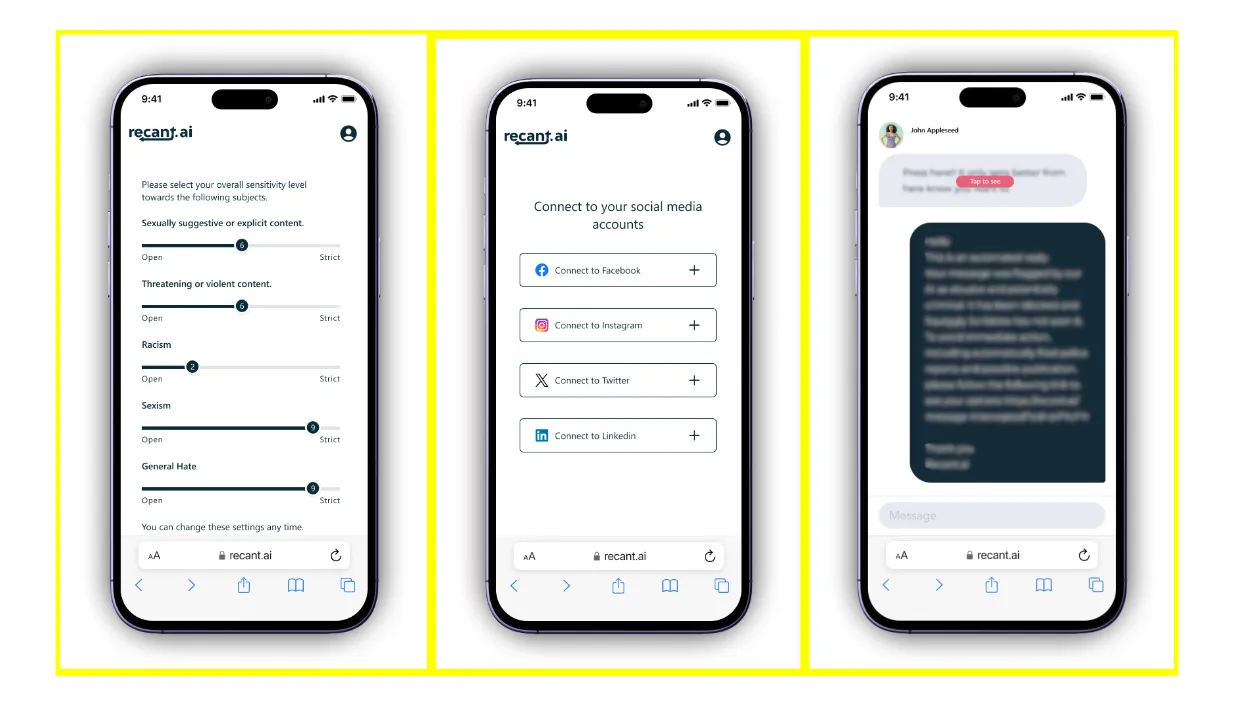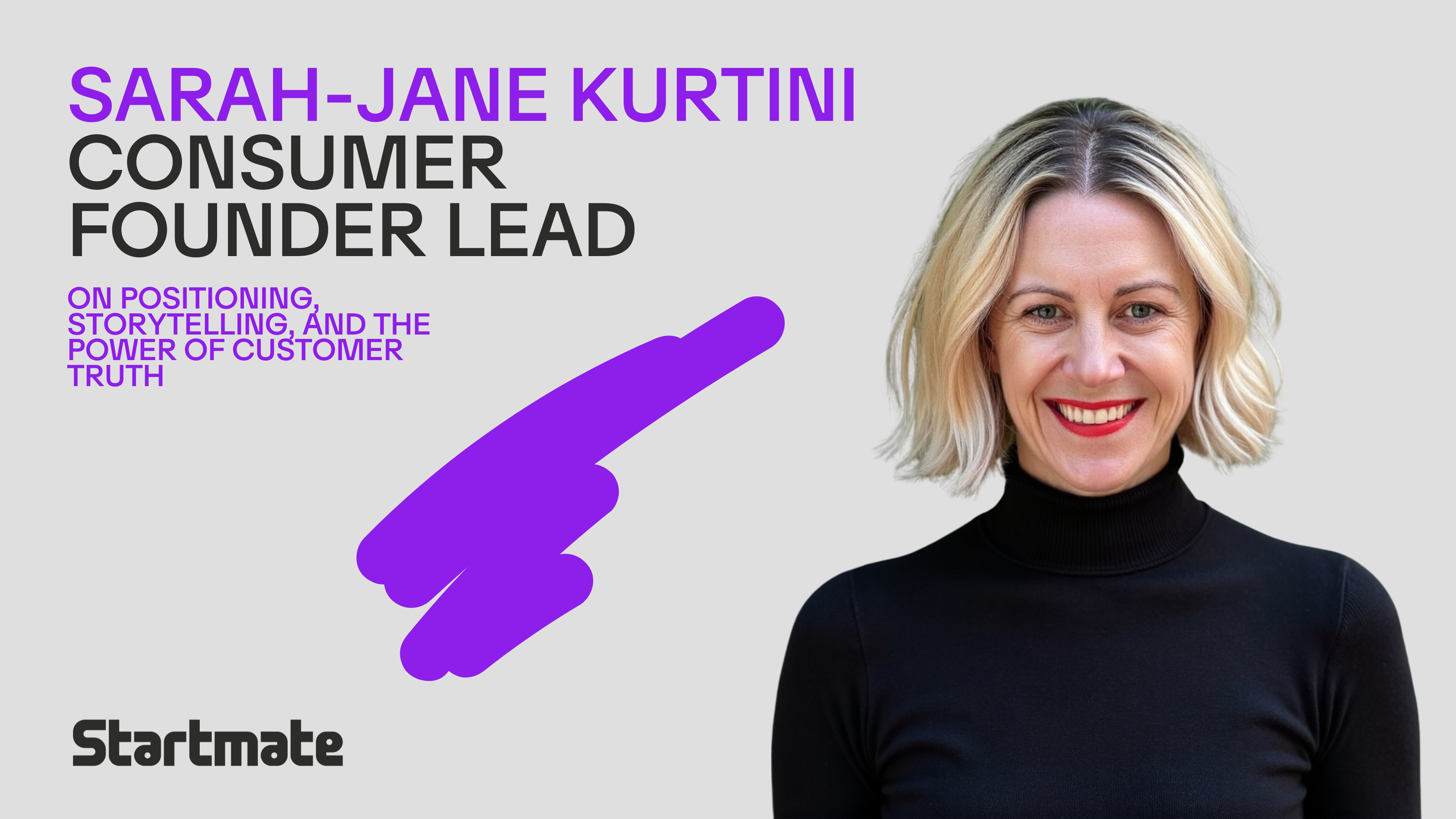Paris, fashion, and never ending viral social media posts and campaigns. I’m describing the key elements of ‘Emily in Paris’, a global phenomenon that follows the exploits of Emily, a Chicagoan social media marketer and influencer living and working in Paris. We see her documenting her life in Paris on social media, always receiving love and compliments online. However what we don't see is the non-Hollywood romanticised side of social media: vile DMs, and harassment at scale waiting for her to review and escalate.
When you decide to use social media, you unknowingly agree to open yourself to a barrage of digital abuse and harassment. In fact, a survey found that over 60% of Australian adults (across genders) had experienced some form of digital harassment and abuse in their lifetime (of the ten’s of billions of DMs sent on social media platforms every day, 6% are 'abusive'). Social media platforms have tried to curb this behaviour by allowing users to limit comments, block users, or report them. However, abusers and trolls can often find ways around these by sending direct messages or using anonymous accounts. Often reporting or escalating behaviours, even when done multiple times, does not result in any action.
“In public spaces, like a pub for example, and someone in the vicinity behaves inappropriately there would be an uncomfortable response to that - whether that is dealing with the individual directly, calling security, or even calling the police. This traditional response, while not perfect, has some pushback built into it to disincentive such behaviour. However, in the digital realm, that doesn’t exist”, co-founder, Cam McMaster commented.
Deciding that it was time to put an end to online harassment, Cam, Martin Kemka and Chris McLoghlin founded Recant.ai. The technology intercepts abusive messages and holds perpetrators accountable, making it possible to have safer, more positive interactions online.
Bringing humanity back online
For a long time governments have looked for ways to discourage unwanted and illegal behaviour online. Laws are constantly evolving to include a broader set of behaviours and actions. For example cyberflashing was criminalised in the UK in January 2024 and a 39 year old man was the first to be convicted in March 2024. Intervention by law enforcement relies on users being able to identify and report illegal behaviour. However, if you’re a social media influencer or public figure who encounters such behaviour constantly from all over the world, what do you do?
Shedding light on the problem, Cam shared “There’s an influencer we’re speaking to who gets a lot of hate on Instagram. Most of it is through bots or burner accounts. She gets this every day, every hour. If she was to try to go through all of that and filter it out, reporting items to law enforcement, she’d never get her job done. It’s just impossible. Much of it is inter-jurisdictional as well which limits the actions she is able to take. Other influencers we’ve spoken to have reported increasingly serious behaviours such as stalking, violent videos, and doxxing of addresses. In one instance the behaviour was serious enough to get a meeting with Meta executives but the outcome was disappointing with the executives suggesting that the influencer shut down their social media accounts.”
Eventually, someone needs to look at this content and filter it out - a job that is often delegated to social media managers or content moderation teams. Wanting a better solution, the Recant team asked themselves - what if we could do this with AI? The concept is simple: content parameters are set by users and based on these, the content is reviewed and either filtered out or reported.
Elaborating on how the technology works, Cam said “We knew that we wanted a customisable approach for users. For instance a politically-inclined writer may be open to some general hate and racist comments that informs their writing but draws the line at death threats. Once these parameters are set, we detect content that exceeds the thresholds set. Depending on the nature of it different actions are taken - spam will be blocked but potentially dangerous content will be escalated for review and reporting.”
The team has two versions of their product - one for consumers and the other for businesses.
Companies such as media outlets, sports teams, agencies etc. are often on the receiving end for a lot of hate. They have a higher duty of care to provide a safe working environment for their teams. This tool can help do that by filtering out harmful and threatening content.
Besides filtering out messages, the freemium version of the product also responds to messages explaining how the perpetrator’s behaviours have exposed them to a variety of risks, such as reputational if they were “named and shamed” or their publication was further distributed across the internet. Perpetrators will then be redirected to materials that are focused on helping educate them on the impacts of online abuse and their behaviours to avoid eliminate legal risks. Similar to a polluter tax, the cost of this is borne by the perpetrator. There is also a two strike policy meaning serial offenders will be registered on a “troll register” that can be accessed by the local police and employers for background checks.

Building trust and re-imagining social media
Cam, Martin, and Chris first started working on the idea for Recant around Christmas time, with Cam going full-time in January 2024 and the others a few months later. For them friendships and old work relationships laid the foundation for an effective partnership. Chris and Cam are family friends who have known each other for almost a decade. Chris and Martin, on the other hand, had worked on a project to develop an AI tool for identifying and picking mushrooms in the past.
Sharing the story of how he knew they were the right co-founders Cam says with a smile “Well, they’re both wickedly smart for one.” Continuing, he shared “ I trust Chris deeply and we share the same values. Chris has founded several successful start-ups in the past and we have a network of highly reliable and capable people. When he introduced me to Martin, it was instantly clear with his data science background and a deep understanding of AI that he was the right person to be our CTO.”
Chris had been a part of the Startmate Accelerator program in the past with Rainstick and had experienced the wins from it first-hand. Cam on the other hand was a bit sceptical at the beginning. “I saw Chris going through the program last year and asked him why he was bothering with these programs instead of dedicating all his time and energy solely on the business. It then took him about 10 minutes to convince me how valuable the program had been for Rainstick. When we started working on Recant this year I told Chris that we would get into the Accelerator program. This time Chris was sceptical, given how competitive the program is, but I convinced him.”

Since joining the Winter’24 cohort, the team at Recant have been able to further refine their idea, exploring how they can grow with a customer-focus. The team is now moving into beta testing for their product, observing how it works across a variety of platforms and where performance can be optimised.
Cam sees increasing opportunities for Recant to protect users as the internet enters an era of deep fakes and the metaverse. In this space there are more opportunities for users to engage in real-time anti-social behaviours with digital versions of themselves, such as sexual assault. The result however is that these instances can feel more traumatic due to an inability to distinguish between physical proximity in the online world from the real world.
“As I think through these issues I realise that the scope and scale in which Recant can grow is huge. There will be a need to develop technologies to mitigate threats and risks here. These issues will affect our younger demographic who will have to deal with these behaviours and may not yet be equipped to handle it. There’s a lot of good that can come from these new technologies, we just need to ensure that we have the shields and mechanisms in place to make them more positive”, Cam said.
With a tool like Recant, user experiences on social media can be closer to what Emily experiences - a positive space to share interests, exchange opinions, and broaden your community.
Looking back at how far Recant has come and its potential to truly transform online spaces, Cam’s advice for other founders is purpose-led, “Identify the biggest, hairiest problem you can conceive of where you have unique insights and a competitive advantage to pursue. Then, dedicate everything to it.”






%204.webp)
.png)
